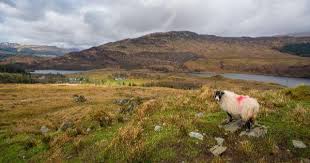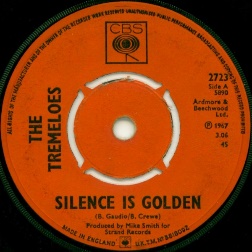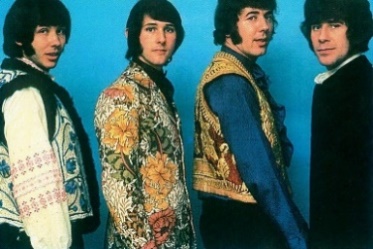Introduction
RENEW YOUR MEMBERSHIP!
Your membership subscription is due for renewal on 1st September 2022
We are now in a position to start the process of renewing membership for the year 2022-3. You will find accompanying this FORUM, as separate items the provisional programme for the year and an application form for membership renewal and course registration. Also, included as a separate item, is a copy of the constitution as revised at the AGM. The procedure for renewing membership and registering for courses is the same as last year, but the programme, though essentially in place, has yet to be finally confirmed. We will not take bookings for the Spring course until details are finalised.
The minutes of the AGM are included in this FORUM together with a report on the talk which followed. There is article on the Kinder Scout Trespass by Christine Vasey and the first part of a piece by Peter Firth on the vagaries of the English language. The second part of the latter will appear in the Autumn edition.
Places have now been confirmed for the Scarisbrick Hall visits on 3rd and 4th August. Please bring £12 cash/cheque in a named envelope on the day. Scarisbrick Hall has advised that they prefer us to park close to the school rather than the top car park as I suggested. If the weather is bad, please bring an umbrella.
Minutes of Annual General Meeting on Friday 24th June 2022
- The minutes of the 2021 AGM were accepted.
- Apologies for absence from Roger Allison, Brenda Butterworth, Bob Neate, Mary Ormsby, John Sharp, Margaret Wilford.
- The Chairman reported on a busy and successful year. He particularly thanked the retiring treasurer, Bob Neate, for his contribution to the society over the past 15 years. The Chairman’s Report was accepted.
- In Bob Neate’s absence, Peter Firth summarised the present financial position. It was particularly satisfactory to report that the income from course fees was more than sufficient to cover the direct costs of running the courses. The Treasurer’s Report was accepted.
- Officers and Committee were elected.
Chair: Alan Potter
Vice Chair: Mary Ormsby
Treasurer: Peter Firth
Secretary: Roger Mitchell
Membership Secretary: John Sharp
Other Committee Members: Margaret Boneham, Rob Firth, Christine Vasey. - Constitution. The proposals for minor changes were accepted and a revised copy of the constitution is attached.
Roger Mitchell
Modern Art for the Table
After the AGM, we were informed and entertained by a lecture and an exhibition. Jill Newsham is a SUES member and an Associate Lecturer at the University of Central Lancashire. She has a particular interest in ceramics and, as became increasingly evident, a fascination with and an enthusiasm for the items exhibited at Harrods in Knightsbridge between October 22nd and November 10th 1934.
This might seem a relatively obscure event. It was all over within three weeks and only generated a modest volume of sales but Jill quickly dispelled any doubts that we might have had about its significance. This was an exhibition that the British art establishment urgently needed. Links between art, industry and commerce were much more developed in France. In 1925 the Exposition Internationale des Arts Decoratifs et Industriels Modernes (Art Deco for short) had taken place in Paris. The great French department stores had their own pavilions, but there was nothing from Harrods and the British Pavilion was described as ‘unremarkable’.
Almost a decade later, the Harrods Exhibition was an attempt to bring art and industry, specifically the ceramics industry, closer together. The Royal College of Art was involved as were three producers of tableware – Foley China, Newport Pottery and Stuart Crystal – and no fewer than 27 leading artists contributed. It was when Jill introduced us to these artists that we realised that something special happened. It really was a list of the great and the good of the inter-war period. Some of them were still at the start of their careers but emerging talent had clearly been spotted. The cast included Laura Knight, Vanessa Bell, Duncan Grant, Ben Nicholson, Paul Nash, Frank Brangwyn and Graham Sutherland. They were given a free hand but only limited support and some responses were frankly disappointing. Ben Nicholson and Eric Ravilious came close to being ‘named and shamed’.
The artistic success of the exhibition owed much to two talented individuals and to their co-operation. Clarice Cliff, who was already the art director at Newport Pottery, worked closely with Laura Knight, who responded enthusiastically to the new opportunities with her Circus designs for plates, teapots, lamp bases and decanters. Later in life, Clarice Cliff described the event as ‘the closest thing to a flop’ in her career. This may be true from a commercial point of view, but like so many exhibitions, this one was ahead of its time and Jill left us in little doubt that were she to be transported back to 1925, she would have made enough purchases to generate a handsome profit. Instead, her collection has been acquired slowly and patiently and with single items rather than full tea services. While drinking our tea from the less memorable tableware provided by All Saints church hall, we all enjoyed the opportunity to get a close-up look at these products from almost a century ago.
In his vote of thanks to Jill, Alan expressed everyone’s feeling that this had been a special afternoon that had opened up a new and fascinating topic to us.
Roger Mitchell
Freedom to Roam
I’m a rambler, I’m a rambler from Manchester way
I get all my pleasure the hard moorland way
I may be a wage slave on Monday
But I am a free man on Sunday

Some years ago, when I was working at the University of Central Lancashire (UCLan) in Preston, I took a coach load of Chinese students to Bolton Abbey in Wharfedale. Also in the party was Mr Tang, a Chinese teacher of English, from the city of Guangzhou. The plan was to look round the abbey ruins, then walk along the Wharfe as far as the Cavendish bridge and return on the opposite bank, no more than six miles on a relatively flat, smooth path. Mr Tang, clad in suit, collar and tie and a mackintosh slung over one arm, looked down rather uneasily at his polished brogues. As we walked along, I extolled the virtues of the English countryside and told Mr Tang that my husband and I went walking every weekend. He gave a puzzled frown. “Teacher Christine. Are you made to do this?” He obviously thought it must be a punishment for some crime or misdemeanour. “No, No.” I replied, “It’s our hobby.” From the expression of complete incomprehension which crossed his face, I could see that he thought I was completely mad. My husband too! Mr Tang did not realise until I set him right that walking for pleasure was one of the most popular leisure activities in Britain. He shook his head in disbelief.
However, Mr Tang’s response would have been more measured if we had been able to turn the clock back to the 19th century when industrialisation sprawled across the land particularly in the polluted manufacturing cities and dark satanic mills of the north. In these toxic conditions, the need to escape into fresh air and green spaces became paramount. Groups of factory workers, especially from Manchester, Leeds and Sheffield, formed walking clubs to escape from their grim and grimy surroundings and began campaigning for walkers’ rights in an attempt to counteract the enclosure acts which had, over the years, transferred common land and waste land into the hands of private landowners many of whom closed off their land to what they termed trespassers and some gamekeepers even set man traps to deter intruders.
Conflict became inevitable. In 1896, a mass trespass took place on Winter Hill near Bolton when 10,000 local people stormed the hill and torched the moorland. This event and many other smaller ones have been largely forgotten in the mythology of the right to roam. But one event, in particular, is regarded as the pivotal turning point in the history of rambling and that is the Kinder Scout mass trespass of April 24 1932. This was much smaller than the Winter Hill trespass but the repercussions of Kinder Scout still linger with us today.
He called me a louse and said “Think of the grouse”
Well, I thought, but I still couldn’t see
Why all Kinder Scout and the moors roundabout
Couldn’t take both the poor grouse and me
He said “All this land is my master’s”
At that I stood shaking my head
No man has a right to own mountains
Any more than the deep ocean bed

The hiking craze both for workers and the professional classes that had begun towards the end of the 19th century really took off in the 1920s and 30s and in 1931, the National Council of Ramblers Federations was formed to represent the interests of walkers. It tended to be middle class and respectable, possibly a bit too deferential to the landowners and certainly not in favour of any trespassing. The British Workers Sports Fellowship, the youth branch of the British communist party, under the leadership of a militant Mancunian, Benny Rothman, who had been sacked from his job for selling copies of the Daily Worker to his workmates, took a much more radical stance. Benny Rothman combined political activism with a love of the outdoors and he bitterly resented the fact that Kinder Scout, at 636 metres above sea level, the highest point in the Peak District with challenging, exciting walking and spectacular views from the top was out of bounds to ordinary people.
The land was the Duke of Devonshire’s grouse moor and, apart from the gamekeepers, totally deserted outside the shooting season. Benny Rothman organised the trespass and mustered a group of approximately 400 people. He also arranged for a similar group from Sheffield to approach the summit of Kinder Scout from the eastern side. The trespassers assembled at Bowden Bridge quarry near the village of Hayfield. As they ascended via William Clough, a line of gamekeepers brandishing stout sticks charged down from the summit plateau and violent scuffles ensued. Nevertheless, the trespassers successfully reached the summit where they met up with the Sheffield group. Mission accomplished!
However, the elation soon evaporated when the trespassers returned to Hayfield where the police were waiting for them. Five ramblers including Benny Rothman were arrested even though trespass is not a criminal offence in England. They were charged with unlawful assembly and breach of the peace. They were sent to Derby for trial and four of them, including Benny Rothman, were sentenced to terms of imprisonment ranging from two to six months. Their case was not helped by the fact that they were card-carrying members of the communist party but prison sentences for walking up a mountain provoked a public outcry and became headline news. The debate about the rights of ordinary working-class people vis a vis the wealthy landowning class raged with considerable fury on both sides.
So, I’ll walk where I will over mountain and hill
And I’ll lie where the bracken is deep
I belong to the mountains, the clear running fountains
Where grey rocks lie ragged and steep
I’ve seen white hare in the gullies
And the curlew fly high overheard
And sooner than part from the mountains
I think I would rather be dead
The unforeseen consequences of the Kinder Scout trespass are significant and paved the way for the access to the countryside which we enjoy today. The National Council of Ramblers Federations realising that the trespassers had gained public attention and sympathy decided to become much more proactive in fostering and protecting walkers’ rights. In 1935, they changed their name to the Ramblers Association and adopted charitable status. They became deeply involved in the movement to establish national parks but these plans had to be shelved during the war. In 1951, the Peak District became the first national park and Britain’s first long-distance footpath, the Pennine Way, was opened.
We now have 15 national parks and hundreds of long-distance footpaths. From 1948 onwards, the Ramblers Association campaigned tirelessly to open up access to other areas of the countryside not just the mountains and moorland and this culminated after years of ceaseless lobbying in the Countryside and Rights of Way (CROW) Act in 2000 and much more open countryside became available to the public. The Ramblers Association volunteers also maintain footpaths and rights of way and the organisation takes legal action against any landowner who attempts to block a public footpath. Currently, there is a race against time to register all unrecorded footpaths and bridleways before the deadline of 1st January 2026 when the final implementation of the Countryside and Rights of Way Act comes into effect and any unregistered footpath will be lost forever after that date.
Some critics claim that the importance of the Kinder Scout trespass in the fight to roam freely has been grossly exaggerated but whatever its actual effects, its symbolic importance, is undeniable and remains alive in the public imagination. The anniversary of the trespass is marked every year by walking the Trespass Trail up Kinder Scout. Benny Rothman has a commemorative plaque at Bowden Bridge quarry and a blue plaque outside his family home in Timperley. Northern Rail has an engine called Benny Rothman – The Manchester Rambler and there is another much more tuneful Manchester Rambler penned by singer/songwriter Ewan MacColl in 1932 to commemorate the Kinder Scout trespass and now a standard in every folk club in the land.
Mr Tang, the Chinese teacher, thought walking was only for peasants and those too poor to afford a car. I fear he will never change his polished brogues for a pair of walking boots. We finish with the story of Vanessa, a Chinese student, who for very different reasons, failed to bond with the landscape we all love so much. On an outing to the Lake District, Vanessa whispered to me that she needed a comfort stop. I indicated the corner of a tumbledown barn as a suitable venue. After a few minutes I heard a shrill scream and then an even louder one. Vanessa came running out of the barn with some greenery in her gloved hand. Whatever was the matter? It transpired that a curious cow had poked its horned head over the wall as Vanessa was about to crouch down and she firmly believed it was going to attack her. The cow seemed to lose interest and sauntered off or was it perhaps waiting in ambush? Vanessa, in a desperate hurry to get away from the barn, snatched up a handful of green leaves to wipe herself, screamed again and ran out in panic. Looking at the vegetation she was still clutching in her hand, I realised that she had used a bunch of stinging nettles as toilet paper! It seems that nettles are unknown in south China. For Vanessa, the English countryside is infested with ferocious animals and flesh-eating plants and she will never set foot there ever again! What a pity!

And sooner than part from the mountains
I think I would rather be dead
Christine Vasey
Silence Is Golden: Part One
For those of us of a certain vintage may recall ‘Silence is Golden’ No. 1 in the British hit parade in 1967, sung by the Tremeloes. Anyone, lucky enough to be at the Liverpool Philharmonic on May 13th 2022, would have witnessed a live version of that hit by the group’s increasingly ageing remnants, the Trems. Despite this and any potential mobility limitations, their performance was as loud and bouncy as ever! So, where did the Tremeloes want us to find that golden silence? One simple answer: just look at the way English is spelt and, more importantly, compare this with the way it’s spoken.


To help explain this, you may already be aware of some family surnames, such as Cholmondley, Featherstonehough, Marjoribanks, Brougham and Beauchamp. Their somewhat outrageous pronunciations are something like: Chumley, Fanshaw, Marchbanks, Broom and Beecham, the result of multiple silent letters. I often wonder why the spellings are retained by those families.
On a more individual level, have you ever thought about how many sentences we use in everyday English that contain silent letters? There are at least three easily recognisable ones in the preceding question, as highlighted (g, h and e). Experts estimate that about 60% of English sentences contain at least one silent letter! You might like to think about that for a minute to let it sink in.
Not all languages have such idiosyncrasies. For example, Spanish is standard in its pronunciation, with virtually no irregularities and, therefore, an absence of silent letters, apart from the letter “h” and also in some imported foreign words. The same can largely be said about Italian and to a lesser extent about German. However, another language which has many pronunciation inconsistencies is French. Even a passing knowledge reveals a similar problem between French pronunciation and spelling, with its wide range of silent letters, some of which spill over into English words (see below).
In order to demonstrate the extent of silent letters in English, the Reader’s Digest printed an article which included the following contrived sentence:
The rogue knight doubted that the asthmatic knave in knickers could climb the castle columns, but when their wrangle wrought chaos on the couple, the knight resigned with the knowledge that their tight-knit friendship wouldn’t succumb to dumb disputes.
If you were to pronounce every single letter you see in that ridiculous sentence, it would sound very different from what you’ve just read in your mind. In short, within this manufactured text of 214 letters, 35 are recognisably silent. So, what are the reasons behind this?
Let’s first take a small selection of words, alphabetically arranged, and see if any patterns emerge but, more importantly, to recognise the range and type of words with silent letters.
Many may not be immediately obvious. Having absorbed these idiosyncrasies into English, we no longer notice them as being silent!
You will note that there is a wide variety. Some silent letters appear in many words, others in only one or two.
a: meant, realm, bread, head, lead (the metal), read (the past tense of to read), logically, artistically, eventually, musically, stoically, romantically
b: comb, climb, tomb, debt, limb, plumber, doubt, crumb, numb, thumb, lamb, succumb, subtle, aplomb, plumb, womb, dumb (but dumbo!), bomb (but still silent in bomber)
c: indict, victuals, scent, scenario, descent, crescent, scissors, scene, muscle, fascinate, ascent, science, conscience, fluorescent, abscess, conscious, disciple, obscene, resuscitate
d: sandwich, handkerchief, adjust, adjective, handsome, grandson, Wednesday (there might be a trace of a “d” sound in the last three with some people, but for how much longer?)
e: called, laughed, every, different, several, interesting, are, literature, temperature, plaque, line, name, give, hate, clothes
f: halfpenny (ha’penny), suffer, different, stiff, traffic, giraffe, affair, diffuse (the double “ff” doesn’t add to the way these words are pronounced; compare the last two in the list with afar and refuse where only one “f” makes the same sound; also compare prefix and suffix; stiff was written “stif” in Old English; many languages use only one “f” to make this sound in similar words, such as diferente in Spanish, but différent in French)
g: align, assign, benign, campaign, champagne, cologne. consign, design, feign, foreign, gnarl, gnash, gnat, gnaw, gnome, high, light, reign, malign, resign, sign (see note below regarding the last three)
h: heir, hour, ghost, aghast, when, what, honour, rhythm, anchor, archaeology, architect, archive, chaos, character, charisma, chemical, choreograph, chorus, Christian, Christmas, echo, why, whether, which, where, while, white
i: business, friend, cruise, foreign, parliament
j: marijuana
k: blackguard, knack, knuckle, knowledge, know, knot, knock, knob, knitting, knit, knight, knife, knickers, know, knee, knave, knead, kneel, knell, knoll
l: yolk, talk, salmon, half, calf, should, would, could, half, palm, almond, balm, calm, chalk
m: mnemonic, mneme
n: solemn, hymn, damn, condemn, column, autumn
o: jeopardy, leopard, colonel, people
p: psychology, pneumonia, pseudo, psychiatrist, raspberry, psalm, cupboard, coup, corps, receipt
q: lacquer, racquet, acquire (it might be argued that “c” is the silent letter in these three.)
r: forecastle (fo’cstle), farther, reader, leader, butter (some dialects do pronounce the final “r” in the last three), arrow, arrogant (only one “r” is necessary, as in arose, around), record (noun), February (you might sometimes hear the first “r”)
s: viscount, isle, aisle, island, debris, bourgeois, apropos
t: apostle, bristle, bustle, castle, fasten, glisten, hustle, jostle, listen, nestle, thistle, ballet, Christmas, mortgage, often (sometimes, you might hear the “t”)
u: catalogue, dialogue, colleague, guard, guess, laugh, league, tongue, biscuit, rogue, guitar, guilty, guild, guide, guest, disguise, circuit, build, guess, tongue (see below for various explanations)
v: apart from three unusual words with double “vv” – navvy (from navigator, possibly to differentiate from navy) and spivvy, the adjective from spiv, and a word popular with Stephen Fry, luvvie – “v” never appears silent on its own
w: wreckage, wren, wrench, wrestling, wretched, wriggle, wring, wrinkle, wrist, wrong, answer, awry, playwright, sword, two, whole, wrack, wrap, wrath, wreath, wrangle, wreak, writ, write, who
x: faux pas, faux
y: beyond (despite yonder/yon, this could be written “beeond” or “be-ond” and would sound the same)
z: rendezvous, laissez-faire, chez (despite being French, these have been firmly established entries in English dictionaries for centuries, as with the French silent “x” and the silent Greek “p”)
The above assortment has been based on what most people call Standard English. However, when we go to equally valid regional dialects or non-standard English, such as Scottish English, Black English, Asian English, Australian and New Zealand English, together with a multiplicity of other non-standard Englishes, the number of silent letters can be much higher (although in a few cases, lower).
But these often confusing words in pronunciation weren’t intended to be confusing. There are a variety of reasons as to how their silence came about – some subjectively manipulated, others evolved socio-linguistically, that is, a change brought about by those actually using the language. Many factors have been at work. In most cases, silent letters were originally pronounced. For example, the “kn” in “knight” originally made two sounds “k-night”, before the “k” became silent in the 1500s, about the same time as the “t” in castle and soften did the same.
Part two of this article, appearing in the next Forum, will explore the background to the wide range of different factors which have resulted in so many silent letters in modern English.

Peter Firth
Oral History in Sefton
A heritage project, based on the oral history of residents’ contemporary history, aims to celebrate Sefton’s people and places. Called “Our Voices to be Heard”, the cumulative outcome of residents’ participation will be an exhibition of all contributions at the end of 2022.
Members have the opportunity to provide the oral recollection of their history of Sefton.
The project, funded by the National Lottery and co-ordinated by Sefton CVS, is being organised by Emma Copestake (emma.copestake@seftoncvs.org.uk or 0151 920 0726).
Please contact Emma, so as to be able to participate in this grassroots project for Sefton and its residents. Alternatively, there is a questionnaire for anyone wishing to contribute to the project, available to download at http://www.seftoncvs.org.uk/project/heritageproject/
Contacts
Chair: Alan Potter
alanspotter@hotmail.com
07713 428670
Secretary: Roger Mitchell
rg.mitchell@btinternet.com
01695 423594 (Texts preferred to calls)
Membership Secretary: Rob Firth
suesmembers74@gmail.com
01704 535914
Forum Editor: Chris Nelson
chris@niddart.co.uk
07960 117719
Facebook: facebook.com/groups/southportues
See our archive for previous editions of the SUES Forum!